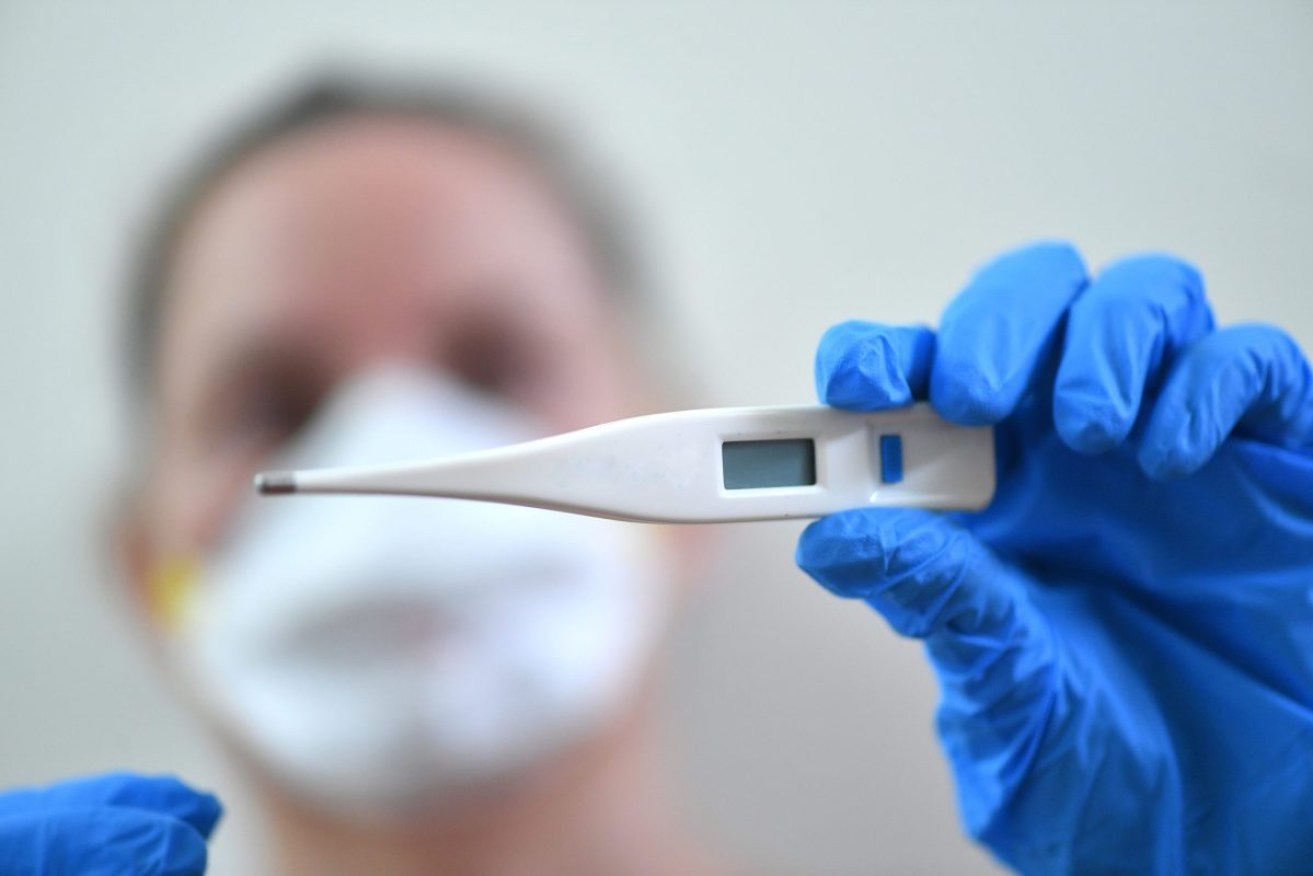GPs refusing to see patients due to lack of COVID-19 ‘armour’
Serious illnesses like cancer will go undetected with more GPs and private specialists refusing to see patients in person because of a lack of specialised face masks as COVID spreads in South Australia, doctors warn.


Photo: David Mariuz/AAP
Australian Medical Association state president Dr Michelle Atchison this morning said the organisation was being inundated with calls from concerned medicos and patients about the problem.
“Our doctors aren’t being protected – we haven’t got the armour we need,” Atchison told InDaily.
“Almost every issue that is being brought to us by doctors at the moment is we can’t get hold of N95 masks, where can we get them.
“One way of doctors coping with that is to say we’re not seeing anyone who isn’t double vaccinated, we’re not seeing anyone with a respiratory symptom, or we’re going entirely to Telehealth because that way I don’t have to think about this.
“We’re getting a lot of calls from the community, saying I can’t get in to see my GP, they won’t see me. It’s having a flow on effect to people’s healthcare.”
Atchison was worried diseases like skin cancer, bowel cancer and Parkinson’s disease would go undiagnosed.
“Telehealth is appropriate for some medical consultations but certainly not for all,” she said.
“The AMA is concerned we will end up with a whole hump of medical problems that haven’t been properly diagnosed once we come out of this situation.
“If doctors were able to access personal protective equipment – and in particular these particular types of masks – easily and have plentiful supplies of them then we wouldn’t be running into these other problems that we’re starting to see creep up.”
Atchison said the lack of PPE was affecting GPs, private specialists and pharmacists.
“It’s leading to them either wearing inappropriate PPE and risking it or doing things like… wearing an N95 mask all day whereas that’s an inappropriate way of doing it,” she said.
“To have to ration your supplies is a terrible situation for a doctor to be in.”
Adelaide GP and chairman of the Immunisation Coalition Dr Rod Pearce said his four clinics were grappling with the problem.
“We’ve been paying for them ourselves because that’s the only way we can get the N95 masks,” he said.
“The question is do we use them on every patient or do we use them sparingly?
“We’re winging it because if we use our masks every time we will run out of them.
“We are guessing every time to minimise risk, therefore phone consultations become the safest encounter.”
Pearce said that left “huge risks” to patients, particularly children, going undiagnosed with serious health issues.
“Some doctors are saying they won’t see children because they’re not vaccinated,” he said.
Pearce said illnesses like diabetes, skin cancer, breast cancer and depression were at risk of being missed by phone consultations.
“With depression, if you are not seeing people you are not picking up their background demeanour,” he said.
Atchison said despite weeks of her organisation asking governments for enough PPE to meet doctors’ needs, clinicians were still waiting.
“There seems to be a black hole instead of the stockpile of the higher-level PPE our doctors need and is required under the current guidelines about safe practice,” she said.
“With the borders opening earlier than expected, we asked for and staged meetings with South Australia’s two Primary Health Networks to discuss this issue. We’ve also raised it with SA Health.
“If GPs are to support care for 85 per cent of COVID-positive patients as the SA Health strategies outline, as well as patients with other conditions, PPE is a critical piece of the puzzle.”
Atchison said private specialists were “completely at sea because PHNs have dropped the ball with being involved with them at all”.
“Like myself as a private psychiatrist, PHNs aren’t interested in providing us with protective equipment whereas they should be,” she said.
Atchison said the AMA had also asked SA Health to introduce specific sites or time slots for health care workers to have COVID tests.
“We want to ensure health care workers can be tested as quickly as possible if they’ve been to exposure sites, whether at their own workplaces or elsewhere,” she said.
A spokesperson for SA Health said: “SA Health is able to assist GPs with access to purchase PPE at cost price, including N95 masks, and this was communicated directly to the primary care practitioners on 26 November.”
“Under the Commonwealth agreement, the PHN are able to supply PPE when there is no other commercial supply available, in locations where there may be community transmission of COVID-19, and to GP respiratory clinics,” the spokesperson said.
In a statement, Adelaide Primary Health Network chief executive officer Michelle McKay said: “Adelaide PHN can source PPE from the National Stockpile where practices are unable to obtain PPE, in line with the Commonwealth guidelines.”
“We continue to support general practice by providing PPE supplier information, advising of SA Health negotiated discounts for supply via direct email, regular COVID updates and on our website,” she said.
In a statement, Country SA Primary Health Network chief executive officer Kim Hosking said: “Country SA PHN has met with the Australian Medical Association prior to their media release and has reassured the Australian Medical Association and a general practice representative at that meeting that we are fully supportive of general practice and are able to support their urgent PPE needs.”




